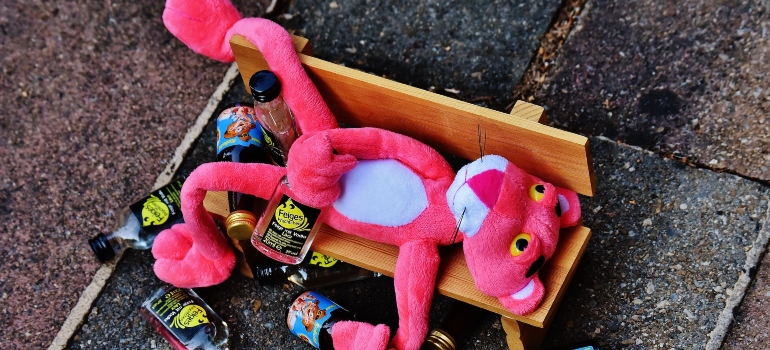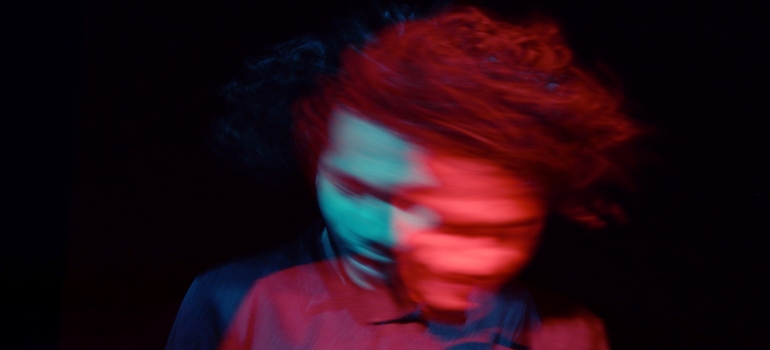While it can be difficult to admit that you have a problem with alcohol, recognizing the signs of addiction is the first step in getting the help you need. The next step is to look for rehab in WV for your alcohol addiction, that is curated to your specific needs. To make the search process easier, this guide is there to help you with every step of the process. Also, you can contact us at Harmony Ridge Recovery Center for additional information about the various treatments we have on offer.
Common telling signs that you need to look for rehab in WV for your alcohol addiction
While it can be difficult to admit that you have a problem with alcohol, recognizing the signs of addiction is the first step in getting the help you need. If you’re concerned about your drinking habits, here are some signs that you may need to seek rehab for your alcohol addiction.

You can’t control your drinking
One of the most obvious signs that you may have an alcohol addiction is that you can’t control your drinking. Whether it’s a social event or a casual night out with friends, it always ends with heavy drinking. Social events, peer pressure, and other factors contribute to increased alcohol dependency.
If you find yourself drinking more than you intended or drinking despite the negative consequences, it may be time to seek help. There’s nothing wrong with admitting that heavy and regular alcohol consumption got the best of you. If you prevent it on time, you’re more likely to turn your life around and get out of the addiction loop before it gets worse.
You drink alone or in secret
Another sign that you may need rehab for your alcohol addiction is that you drink alone or in secret. Many people with alcohol addiction will go to great lengths to hide their drinking from others. If you’re doing it constantly, it’s time to ask yourself about the reasons you’re making your drinking habits a secret.
You have withdrawal symptoms
Withdrawal symptoms are a clear indication that you have developed physical alcohol dependence. If you experience symptoms such as shaking, sweating, or nausea when you stop drinking, it’s a sign that your body has become dependent on alcohol. These symptoms can be severe and, in some cases, life-threatening, which is why it’s essential to seek professional help when dealing with alcohol addiction.
You’re experiencing health problems
Alcohol addiction can have a significant impact on your physical and mental health. If you’re experiencing health problems such as liver damage, high blood pressure, or depression, it’s a sign that your drinking habits are taking a toll on your body. Furthermore, health issues frequently go along with your mental health and the lifestyle you lead.

You’re neglecting your responsibilities and personal relationships
When you’re addicted to alcohol, your priorities can shift. Instead of focusing on your job or relationships, you may find that your primary concern is obtaining alcohol or recovering from the effects of drinking. This can lead to missed work or decreased productivity, which can have negative consequences for your career.
Neglecting your family and loved ones can also be a sign of alcohol addiction. When you’re consumed with drinking, it can be easy to forget about the needs and feelings of those around you. This can lead to strained relationships or even the breakdown of important connections in your life.
You’ve tried to quit before without success
Quitting alcohol can be a challenging process for many people struggling with alcohol addiction. Moreover, there are various reasons why someone may find it difficult to quit or self-withdraw from alcohol:
- One of the most common reasons is that alcohol addiction is a complex disease that affects the brain, making it difficult to control cravings and urges. Over time, the brain becomes accustomed to the presence of alcohol, leading to physical and psychological dependence. As a result, quitting alcohol can lead to withdrawal symptoms, which can be uncomfortable and even dangerous.
- Another reason why people struggle to quit alcohol is that it often serves as a coping mechanism for underlying emotional or mental health issues. Alcohol can temporarily numb feelings of anxiety, depression, or trauma, making it challenging to address these issues without the help of a professional.
- Additionally, environmental and social factors can play a significant role in alcohol addiction. Peer pressure, easy access to alcohol, and stressful living conditions can all contribute to the development and maintenance of alcohol addiction.
If you’ve tried to quit drinking before without success, it’s a sign that you may need professional help. Quitting alcohol addiction can be challenging, and without the right support, it can be challenging to maintain sobriety. Seeking professional alcohol rehab near Cambridge OH can provide you with the support you need to overcome your addiction.

You’re using alcohol to cope with stress
Using alcohol as a way to cope with stress or emotional pain is a sign that you may have an addiction. If you find yourself reaching for a drink every time you’re stressed or upset, it’s a sign that you’re using alcohol to numb your emotions and mental chatter.
Alcohol addiction affects every aspect of your life
Alcohol addiction can have a significant impact on your life as a whole, affecting not only your physical and mental health but also your relationships, finances, and overall well-being. Here are some ways in which alcohol addiction can affect your life:
- Relationships: Alcohol addiction can strain your relationships with friends, family, and loved ones. It can cause arguments, and trust issues, and even lead to divorce or separation. Alcohol addiction can also cause you to isolate yourself from others, leading to feelings of loneliness and depression.
- Finances: Alcohol addiction is also expensive, and the cost of alcohol can quickly add up. It can lead to financial difficulties, such as unpaid bills, debts, and even bankruptcy. In addition, alcohol addiction can also cause you to miss work or lose your job, leading to further financial instability.
- Mental health: Anxiety, depression, and even suicidal thoughts often stem from alcohol addiction. Furthermore, alcohol addiction can also worsen existing mental health problems, making it harder to manage them effectively.
- Physical health: Alcohol addiction can cause significant physical health problems, such as liver damage, high blood pressure, and an increased risk of cancer. It can also weaken your immune system, making you more susceptible to illnesses and infections.
- Legal Issues: Common legal problems associated with alcohol addiction (DUI charges, public intoxication, and even assault or domestic violence) can have serious consequences, including fines, probation, and even jail time.
How to look for an alcohol addiction rehab center in WV
If the majority of the aforementioned signs of alcohol addiction apply to you, then you should consider seeking the alcohol rehab center Marietta OH locals trust the most.
Research multiple rehab facilities
Start by researching rehab centers in your area. Look for centers that specialize in alcohol addiction and have a good reputation for quality care. Read reviews, ask for recommendations from your healthcare provider or trusted friends and family, and check accreditation and licensing. Also, make sure to look for rehab centers that are known for an individual approach to rehab. They offer various specialized rehab programs such as rehab for seniors, rehab for veterans, and so on.

Explore the treatment options
Check if the rehab center offers a variety of treatment options tailored to your individual needs. A good rehab center should have a range of evidence-based treatments that cater to specific problems tied to addiction:
- Medical detox
- Cognitive behavioral therapy for substance use disorders
- Family therapy for addiction
- Dialectical behavior therapy for addiction
- Dual Diagnosis for addiction
- Motivational interviewing for substance abuse
- Additional treatments like art therapy, outdoor recreation, yoga, music therapy, etc.
Staff credentials
Check the credentials of the staff at the rehab center. Ensure they have the necessary qualifications and experience in treating alcohol addiction. A professional rehab center will have trained staff, including medical professionals, therapists, and addiction counselors.
Facility amenities
Check the facility’s amenities and accommodations to ensure that it is a comfortable and safe environment for your recovery. Amenities such as private rooms, recreational activities, and good food make the recovery process easier.
Insurance coverage
Check if the rehab center accepts your insurance or has financial assistance options. Treatment for alcohol addiction can be expensive, and finding an alcohol rehab center in Huntington WV that accepts your insurance can help reduce the financial burden.

Here’s how to find the right insurance plan:
- Research all major, as well as less-known insurance coverage options, check their requirements, and whether you’re the right candidate. Also, consider Medicare and Medicaid.
- Look for rehab centers that accept insurance plans you qualify for.
- Contact rehab facilities to confirm whether they accept the insurance. Don’t hesitate to ask them for additional guidance, the application process, or alternatives in case they don’t accept your chosen insurance plans.
Inpatient vs. Outpatient rehab – Which one is right for you?
When seeking an alcohol rehab center in Clarksburg WV, one of the important decisions you’ll need to make is whether to enroll in an inpatient or outpatient rehab program. Each type of program offers unique benefits, and the decision on which one to choose depends on your individual needs and circumstances. Here’s a breakdown of the differences between inpatient and outpatient rehab:
- Inpatient rehab programs, also known as residential rehab, require you to live at the treatment facility for the duration of the program, typically ranging from 28 days to six months. Inpatient programs provide a highly structured environment that is free from distractions, allowing you to focus solely on your recovery. Inpatient rehab also offers access to 24/7 medical and emotional support, which can be particularly helpful for those with severe alcohol addiction or co-occurring mental health issues.
- Outpatient rehab programs allow you to receive treatment while still living at home and attending to daily responsibilities such as work, school, or family obligations. Outpatient rehab programs range from a few hours a week to several hours a day, depending on the level of care needed. Outpatient rehab is a good option for those with mild to moderate alcohol addiction or for those who have completed an inpatient program and need ongoing support.
The decision on whether to choose inpatient or outpatient rehab depends on several factors, including the severity of your addiction, your living situation, your support system, and your work or school obligations. If you have a severe alcohol addiction, co-occurring mental health issues, or a lack of support at home, inpatient rehab may be the best option for you. On the other hand, if you have a strong support system at home and have mild to moderate addiction, outpatient rehab may be a better fit.
Why you should consider aftercare once you complete an alcohol rehab program
Completing a rehab program for alcohol addiction is a significant accomplishment, but the journey toward recovery doesn’t end there. Aftercare is an essential part of the recovery process, and it can help you maintain sobriety and prevent relapse:
- Continued support: Continued support and guidance can come in the form of group therapy, individual counseling, and peer support. Continued support can help you navigate the challenges of daily life without alcohol and maintain your commitment to sobriety.
- Relapse prevention: Relapse prevention programs teach you how to identify triggers and develop coping mechanisms to deal with them effectively. Relapse prevention can also involve creating an aftercare plan that outlines strategies for managing cravings and maintaining sobriety.
- Accountability: Regular check-ins with counselors or group meetings can provide a sense of accountability that can help you stay on track with your sobriety goals. Being accountable to others can also help you maintain your motivation to stay sober.
- Continued treatment: Aftercare also provides continued treatment for co-occurring mental health conditions that may contribute to alcohol addiction. Continuing treatment for mental health issues can help you manage symptoms and prevent relapse.
- Long-term recovery: By continuing treatment and support, you can build a strong foundation for a healthy, sober life.

Do you recognize any signs you need to look for rehab in WV for your alcohol addiction?
The main reason to look for rehab in WV for your alcohol addiction is not to simply get better, but also to change your life. It might be challenging to admit the problem, however, remember that’s a mandatory first step that will lead to a sober and healthy life. With the help of loved ones and addiction recovery professionals, you’ll be able to handle all stages of recovery and reclaim your life back.



